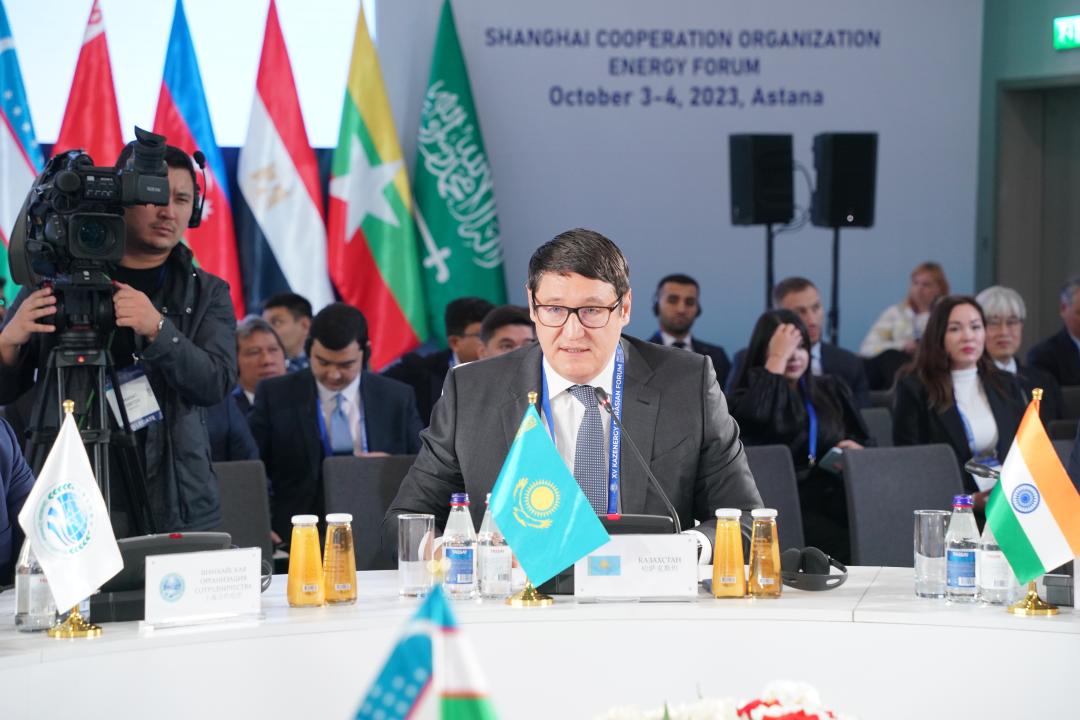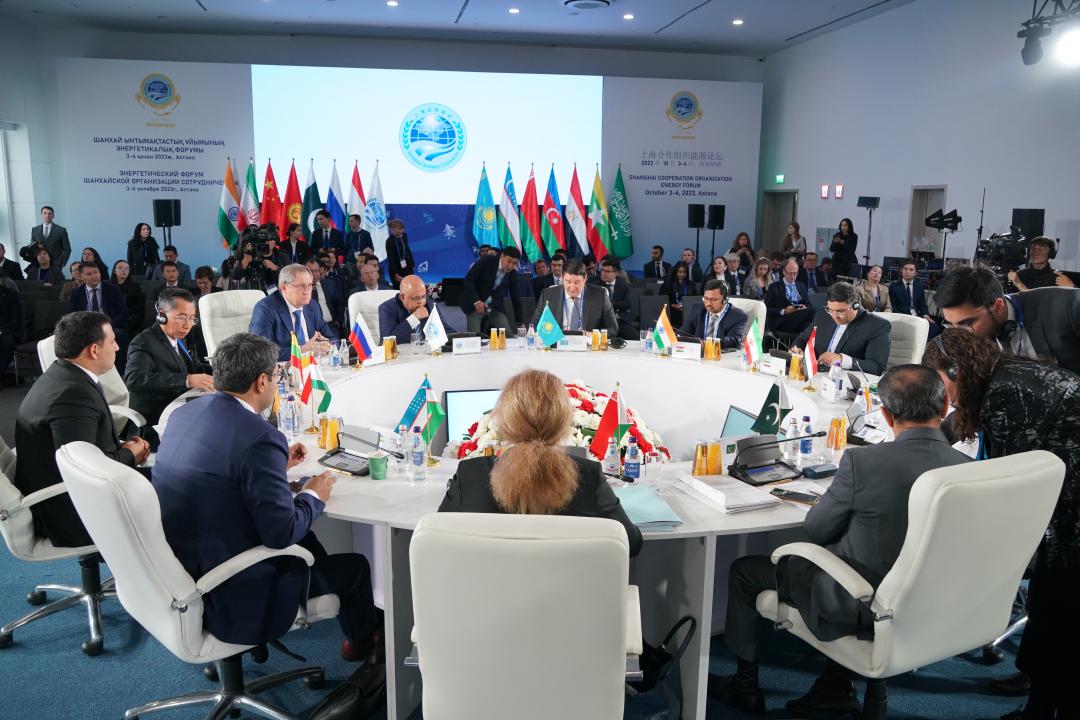ASTANA – Kazakh capital hosted the Shanghai Cooperation Organization (SCO) Energy Forum on Oct. 3, gathering energy ministers to discuss plans to develop cooperation.

Kazakh Minister of Energy Almasadam Satkaliyev. Photo credit: Kazakh Ministry of Energy.
The SCO forum, which was attended by energy leaders from member states, observers and dialogue partners of the SCO, took place as part of the KazEnergy Eurasian Forum, which will last through Oct. 6 in Astana. The forum participants discussed strategic approaches to the development of energy cooperation aimed at ensuring the sustainability of the energy sector.
This year, Kazakhstan chairs SCO, an international organization covering nearly 45% of the world’s population. The SCO member countries together hold approximately 25% of the global oil reserves, over 50% of the world’s gas reserves, 35% of coal reserves, and approximately half of the known uranium reserves worldwide.
“Kazakhstan remains committed to further deepening mutually beneficial cooperation aimed at creating and maintaining favorable conditions for the development of energy sectors of our countries. SCO has proved to be an organization rightfully enjoying international recognition. It became an example of balanced and constructive dialogue between its members, large states including producers with transition potential, and energy users,” said Kazakh Minister of Energy Almasadam Satkaliyev.

This has been the first SCO energy forum. Photo credit: Kazakh Ministry of Energy.
Energy cooperation benefited from the improved regulatory framework, noted the minister.
“In turbulent times, we face growing risks linked to fluctuations in global energy prices, geopolitical shifts, and sanctions limitations. These challenges prompt us to seek innovative and effective solutions to ensure energy sustainability,” said Satkaliyev.
He mentioned the strategy for the development of energy cooperation of SCO member states until 2030, prepared at the initiative of President Kassym-Jomart Tokayev.
The document plans to expand the SCO agenda in the most promising areas for interaction in the energy sector in the medium term. It covers six key areas, including oil and gas, electricity, renewable energy and atomic energy.
The minister suggested forming a permanent working group that will be in charge of adapting the document to the regulations and requirements of SCO member states.
Satkaliyev also called member states to focus on exploring the transit potential of energy resources, diversifying export routes and ensuring the safety of energy deliveries
“Kazakhstan is working on developing transport routes via the Caspian Sea, and we are ready to work with all SCO member states in this regard,” said the minister.
He also stressed the importance of a skilled workforce in driving energy transition and suggested cooperating in the exchange of expertise and knowledge.
First Deputy Energy Minister of Uzbekistan Azim Akhmedkhodjaev said SCO is “undoubtedly one of the most important platforms aimed at analyzing and resolving global and regional issues in all areas, including energy security.”
He noted that Uzbek specialists with colleagues from Kazakhstan, the Kyrgyz Republic and Tajikistan are currently exploring the possibility of building several hydroelectric power stations on the territory of these countries.
“These projects are designed to solve not only energy supply issues but also the issue of ensuring water balance, which is particularly significant for the region,” said the Uzbek official.
“The ever-growing demand for energy on the one hand and climate change on the other hand require combining our efforts in finding the most acceptable ways to provide energy,” he added.
Minister of Energy of Azerbaijan Parviz Shahbazov emphasized that the vast energy potential of SCO member states offers significant opportunities for cooperation in a multilateral format. He reaffirmed his country’s commitment to fostering these ties, saying Azerbaijan’s trade turnover with SCO member countries grew 45.8% in 2022 to more than $9 billion.
In countries’ efforts to address energy challenges, the minister underscored the strategic importance of Tokayev’s initiative to prepare an SCO energy strategy.
Outlining key projects with SCO member states, he pointed out the transportation of Kazakh oil in the Baku-Tbilisi-Ceyhan (BTC) pipeline, one of the key energy infrastructure projects in the region.
“In April-September of this year, nearly 609,000 tons of Kazakh oil were transported by the BTC system. Of this, 493,000 were sent to the world market from the port of Ceyhan. By the end of the year, this volume will reach 1.1 million tons,” the minister added.

